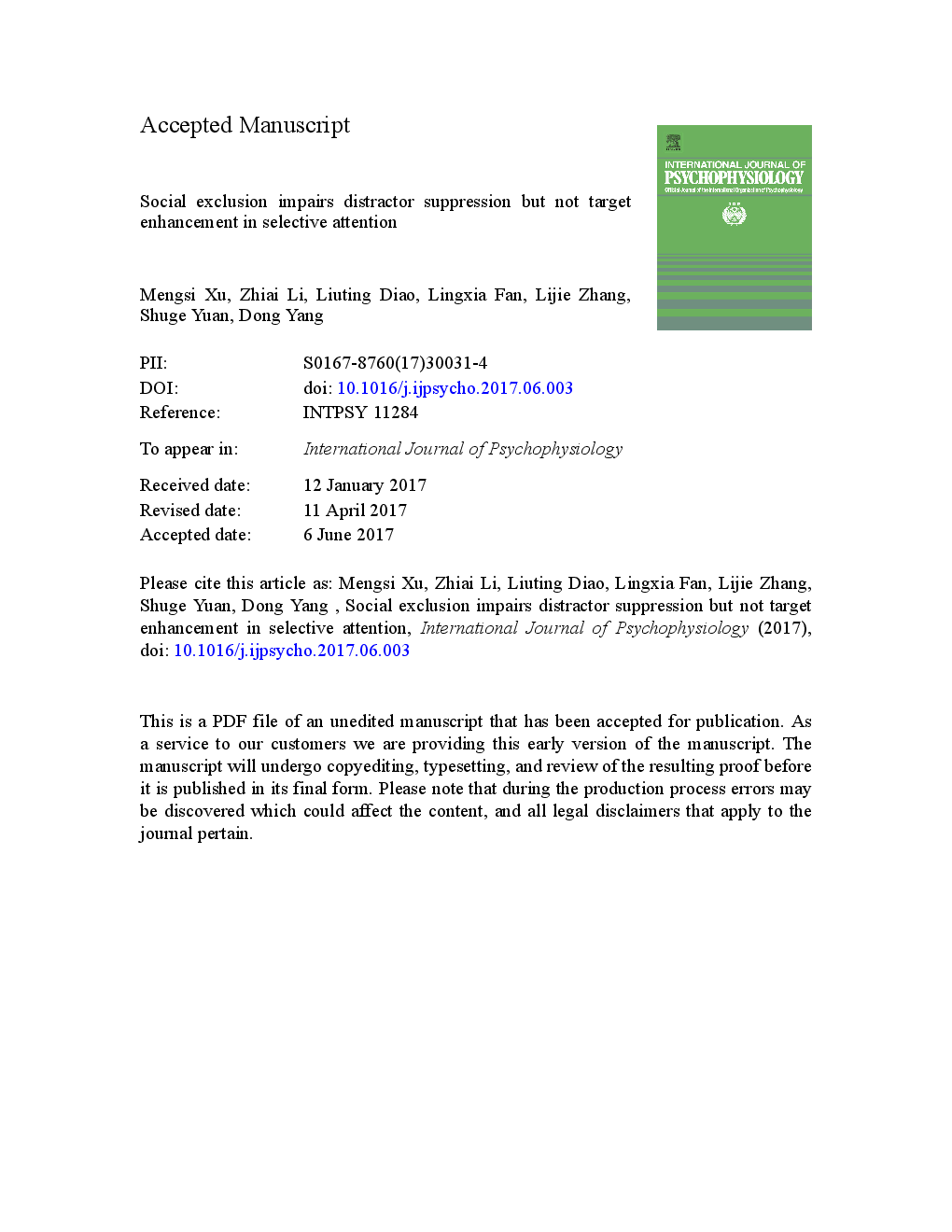ترجمه فارسی عنوان مقاله
خروج از اجتماع، سرکوب حواس پرتی را مختل می کند، اما هدف انتخابی را افزایش نمی دهد
عنوان انگلیسی
Social exclusion impairs distractor suppression but not target enhancement in selective attention
| کد مقاله | سال انتشار | تعداد صفحات مقاله انگلیسی |
|---|---|---|
| 115943 | 2017 | 30 صفحه PDF |
منبع

Publisher : Elsevier - Science Direct (الزویر - ساینس دایرکت)
Journal : International Journal of Psychophysiology, Volume 121, November 2017, Pages 72-79

